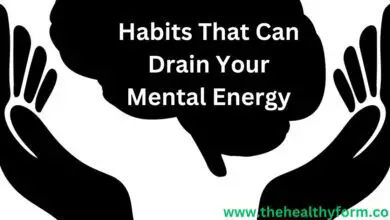Tips for Boosting Self-Esteem and Confidence
Discover practical and effective tips for boosting self-esteem and confidence. Learn how to build a positive self-image and boost your confidence in daily life. Self-esteem and confidence are important for overall well-being and happiness. If you struggle with low self-esteem or lack confidence, there are several tips you can try to boost these qualities.
What is self-esteem?
Self-esteem is a person’s overall evaluation of their worth. How we perceive ourselves and our abilities can affect how we feel about ourselves and interact with others.
What are the benefits of high self-esteem?
High self-esteem has numerous benefits, including:
- Improved Mental Health: People with high self-esteem tend to experience lower levels of anxiety and depression. They have a more positive self-image, which bolsters their mental well-being.
- Enhanced Resilience: High self-esteem individuals are better equipped to cope with life’s challenges. They bounce back from setbacks more readily, viewing failures as opportunities for growth rather than personal flaws.
- Healthy Relationships: Building and maintaining healthy relationships becomes easier with high self-esteem. When you feel good about yourself, you’re more likely to form positive connections with others and attract people who value and respect you.
- Increased Confidence: High self-esteem boosts self-confidence. This confidence can lead to greater assertiveness, better decision-making, and a willingness to pursue and achieve personal and professional goals.
- Optimism and Positivity: Individuals with high self-esteem often have a more positive outlook. They approach challenges optimistically and are more open to new experiences and opportunities.
- Better Physical Health: Research suggests high self-esteem is linked to better physical health. It can lead to healthier lifestyle choices, such as regular exercise and a balanced diet, as individuals value their well-being.
- Higher Academic and Career Achievement: High self-esteem can positively impact academic and career success. It encourages individuals to set ambitious goals, persist in facing challenges, and believe in their abilities to excel.
- Reduced Stress: High self-esteem acts as a buffer against stress. When you believe in your competence and worth, you’re less likely to feel overwhelmed by life’s pressures.
- Greater Happiness: High self-esteem contributes to higher life satisfaction and happiness. Feeling good about yourself makes you more content with your life and choices.
- Personal Fulfillment: Ultimately, high self-esteem can lead to a sense of personal fulfillment. It allows you to be more authentic to yourself, pursuing your passions and goals without self-doubt holding you back.
What are the risks of low self-esteem?
Low self-esteem can have serious consequences, including:
- Depression and Anxiety: Low self-esteem is closely linked to mental health issues such as depression and anxiety. People with low self-esteem are more prone to feeling hopeless, helpless, and overwhelmed by life’s challenges.
- Relationship Problems: Individuals with low self-esteem may struggle with forming and maintaining healthy relationships. They might feel undeserving of love and respect, leading to difficulties in establishing and maintaining connections.
- Lack of Confidence: Low self-esteem can undermine self-confidence, making pursuing goals and taking on new challenges difficult. This can hinder personal and professional growth.
- Negative Self-Talk: People with low self-esteem often engage in negative self-talk, constantly criticizing and belittling themselves. This self-criticism can be emotionally draining and reinforce feelings of inadequacy.
- Unhealthy Coping Mechanisms: Some individuals with low self-esteem use unhealthy coping mechanisms such as substance abuse, overeating, or self-harm to numb their emotional pain or gain control.
- Perfectionism: Low self-esteem can lead to perfectionist tendencies, where individuals set unrealistically high standards for themselves. This can result in chronic stress and a fear of failure.
- Social Isolation: Feeling unworthy or unlikable can lead to social withdrawal and isolation. This isolation can exacerbate feelings of loneliness and sadness.
- Poor Physical Health: Low self-esteem can even have physical consequences. Chronic stress and emotional distress associated with low self-esteem can contribute to a weakened immune system and other health issues.
- Underachievement: Individuals with low self-esteem may not fully reach their potential academically or professionally because they underestimate their abilities and settle for less than they can achieve.
- Difficulty Handling Criticism: People with low self-esteem often struggle to accept constructive criticism and may react defensively, further hindering personal and professional growth.
What are the causes of low self-esteem?
There are many potential causes of low self-esteem, including:
- Negative Childhood Experiences: Experiences of neglect, abuse, or criticism during childhood can significantly impact self-esteem. Children who do not receive adequate emotional support and validation may develop low self-esteem as they internalize these negative experiences.
- Unrealistic Standards: Setting unrealistic standards for oneself regarding appearance, achievements, or success can lead to constant feelings of inadequacy. Falling short of these standards can erode self-esteem.
- Social Comparison: Constantly comparing oneself to others, especially in today’s age of social media, can fuel feelings of inferiority. Seeing others’ highlight reels can lead to a distorted self-image.
- Bullying and Peer Pressure: Experiences of bullying or persistent peer pressure can damage self-esteem, making individuals feel unworthy, different, or socially isolated.
- Traumatic Life Events: Trauma, such as the loss of a loved one, a divorce, or a serious illness, can shatter one’s self-esteem. Coping with these events can be challenging, and feelings of helplessness can take a toll on self-worth.
- Perfectionism: Striving for perfection in every aspect of life can lead to constant self-criticism and the belief that nothing is good enough. This perfectionist mindset can contribute to low self-esteem.
- Lack of Positive Feedback: A lack of positive feedback and affirmation from friends, family, or mentors can make it difficult for individuals to see their value and capabilities.
- Internalized Criticism: Sometimes, people internalize the negative messages they receive from others, even if they are unfounded or unjust. This self-critical inner dialogue can perpetuate low self-esteem.
- Mental Health Issues: Conditions like depression, anxiety, and eating disorders can be both a cause and a consequence of low self-esteem. These conditions often involve distorted self-perceptions.
- Cultural and Societal Influences: Cultural norms and societal pressures can shape individuals’ views. Discrimination, prejudice, or societal beauty standards can negatively impact self-esteem, particularly among marginalized groups.
How can I improve my self-esteem?
Here are some tips for improving self-esteem:
- Practice self-acceptance: Accept yourself, including your flaws and mistakes, and be kind to yourself.
- Set realistic goals: Set achievable goals and focus on progress, not perfection.
- Practice self-care: Take care of your physical and emotional well-being by getting enough sleep, eating a healthy diet, and engaging in activities you enjoy.
- Surround yourself with positive people: Surround yourself with supportive and positive people, and limit time with negative influences.
- Learn from mistakes: Instead of dwelling on them, learn from them and move forward.
- Practice gratitude: Focus on the things you are thankful for instead of dwelling on negative thoughts or experiences.

How can I boost my confidence?
To boost your confidence, try the following tips:
- Set small goals and celebrate your achievements: Setting small, achievable goals can help you build confidence and celebrate your progress.
- Practice self-care: Taking care of yourself physically and emotionally can help boost your confidence and overall well-being
- Seek support: Talk to a trusted friend or family member or consider seeking professional help from a therapist or coach.
- Learn new skills: Building new skills and knowledge can boost your confidence and sense of accomplishment.
- Dress and groom in a way that makes you feel good: Taking care of your appearance can boost your confidence and help you feel good about yourself.
- Practice positive self-talk: Replace negative thoughts with positive ones, such as “I am capable” or “I am worthy.”
How can I overcome low self-esteem?
To overcome low self-esteem, try the tips mentioned above, such as practicing self-acceptance, setting realistic goals, self-care, surrounding yourself with positive people, learning from mistakes, and practicing gratitude. It’s also important to seek help from a mental health professional if you cannot improve your self-esteem.
How can I stop negative self-talk?
Negative self-talk can be harmful to self-esteem and confidence. To stop negative self-talk, try the following:
- Notice when you’re engaging in negative self-talk: Pay attention to your thoughts and identify when you are being self-critical.
- Challenge negative thoughts: When you engage in negative self-talk, try reframing the thought more positively or realistically. For example, instead of thinking, “I’m not good enough,” try thinking, “I’m doing my best, and that’s all I can do.”
- Practice gratitude: Focusing on what you are thankful for can help shift your perspective and reduce negative self-talk.
- Engage in activities that boost self-esteem: Engaging in activities that boost self-esteem, such as setting and achieving goals, can help reduce negative self-talk.
- Seek support: Talk to a trusted friend or family member or consider seeking professional help from a therapist or coach.
How can I build self-confidence?
To build self-confidence, try the tips mentioned above, such as setting small goals and celebrating your achievements, practicing self-care, seeking support, learning new skills, dressing and grooming to make you feel good, and practicing positive self-talk. It’s also important to be patient and remember that building self-confidence takes time and practice.
How can I love myself more?
Loving yourself is an important aspect of self-esteem and confidence. To love yourself more, try the following:
- Practice self-acceptance: Accept yourself, including your flaws and mistakes, and be kind to yourself.
- Practice self-care: Take care of your physical and emotional well-being by getting enough sleep, eating a healthy diet, and engaging in activities you enjoy.
- Surround yourself with positive people: Surround yourself with supportive and positive people, and limit time with negative influences.
- Seek support: Talk to a trusted friend or family member or consider seeking professional help from a therapist or coach.
- Engage in activities that boost self-esteem: Engaging in activities that boost self-esteem, such as setting and achieving goals, can help improve self-love.
- Practice gratitude: Focusing on what you are thankful for can help shift your perspective and improve self-love.
FAQ about Boosting Self-Esteem and Confidence
Here are some of the most common questions people have about boosting self-esteem and confidence:
What are some signs of low self-esteem?
Some signs of low self-esteem include negative self-talk, feeling inferior to others, difficulty accepting compliments, avoiding social situations, and self-doubt.
How can I improve my self-esteem?
You can improve your self-esteem by practicing self-care, setting realistic goals, focusing on your strengths, surrounding yourself with positive people, and challenging negative self-talk.
What is confidence?
Confidence is a feeling of self-assurance and belief in one’s abilities.
How can I boost my confidence?
You can boost your confidence by setting achievable goals, preparing and practicing for new experiences, embracing failure as a learning opportunity, focusing on your strengths, and maintaining a positive attitude.
What are some common causes of low self-esteem and confidence?
Some common causes of low self-esteem and confidence include childhood experiences, negative self-talk, criticism or rejection, comparison to others, and lack of supportive relationships.
Is it possible to build self-esteem and confidence in adulthood?
Yes, it is possible to build self-esteem and confidence in adulthood through self-reflection, seeking support from others, challenging negative beliefs, and practicing self-care.
Conclusion
Self-esteem and confidence are important for overall well-being and happiness. Suppose you struggle with low self-esteem or lack confidence. In that case, there are several tips you can try to boost these qualities, such as practicing self-acceptance, setting realistic goals, practicing self-care, surrounding yourself with positive people, learning from mistakes, practicing gratitude, setting small goals and celebrating your achievements, seeking support, learning new skills, dressing, and grooming in a way that makes you feel good, and practicing positive self-talk. It’s also important to seek help from a mental health professional if you cannot improve your self-esteem and confidence. Remember to be patient and that building self-esteem and confidence takes time and practice.





